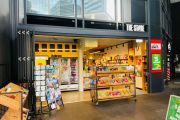
Impact of coronavirus is being felt across all commercial property sectors in Melbourne
Before COVID-19 hit Australian shores, strong economic growth, high levels of construction work and a robust jobs market built solid fundamentals for Victoria’s commercial real estate market.
It was the same positive standing that drove Victoria to its place as Australia’s best-performing economy for the fourth quarter in a row, according to CommSec.
The escalation of the coronavirus since March has changed that story.
The real estate market is nowhere near as volatile as the stock market, which is more susceptible to economic shocks. But there’s no doubt the pandemic’s impacts on businesses have flowed on to the commercial property market.
These impacts will be different for each industry and, as with any change, there will be winners and losers.
To mitigate some of the negative impacts, a mandatory code of conduct for commercial tenancies was confirmed by the federal government in early April. It will apply where the tenant or landlord is eligible for the JobKeeper Program, or has a turnover of up to $50 million.
The code says landlords will not be able to terminate leases or draw on a tenant’s security if they fail to pay rent during the coronavirus period. Landlords must also offer rent discounts proportionate to the tenant’s drop in trade, while the tenant must honour the lease.
The Royal Institution of Chartered Surveyors’ Asia Pacific senior economist Sean Ellison said the coronavirus outbreak started to affect Australia’s building industry in March, with construction firms unable to source materials.
For developments that do not already have these materials onshore, the length of the project’s delay will be dependant on the duration of the outbreak, he said.
On the upside, the delays could act as a buffer for both the Melbourne and Sydney markets against the impact of a wave of new office supply.
The office sector in Victoria appears to be relatively cushioned from an economic downturn, thanks to years of strong rental growth, tight vacancy and limited supply.
In the Melbourne CBD, the vacancy rate fell from 3.4 per cent to 3.2 per cent in the six months to January 2020, according to the Property Council of Australia’s Office Market Report.
It remains the tightest office market in Australia. Not surprisingly, a critical lack of supply has been one of the major issues facing Melbourne’s office market.
The broad range of industries taking up CBD office space in Melbourne also helps insulate the market from shocks felt by certain sectors.
The rise in flexible working in Victoria in the past two years may also see some dampening as start-ups and small businesses could switch to the home office to save costs in a challenging period,
JLL predicts. More small businesses may also find it difficult to stay afloat, which could increase vacant office space in the small suite market.
But some coworking operators, such as CreativeCubes.Co in Melbourne, have reported an increase in demand from businesses seeking to split their teams up across the group’s multiple spaces due to the coronavirus.
The pandemic’s impact on the industrial and retail property market has been a mixed bag, with parts of both markets insulated from the virus to some degree.
While social distancing measures keep many Australians at home, short-term leasing demand for industrial space has shot up, as uncertainty reigns in a rapidly evolving environment.
Non-discretionary retailers, such as supermarkets and third-party logistics companies, are the main sources of this heightened demand.
This is largely thanks to the need or preference to shop online for most Australians who are keeping at home during the pandemic.
But overall, leasing demand for industrial space may slow, due to many discretionary retailers closing their brick-and-mortar doors as they see a downturn in sales volumes.
This is despite shopping centres generally remaining open during the pandemic.
As most of Australia stays at home, the upward trend of online shopping is likely to be accelerated by the coronavirus, with many products only able to be purchased online due to store closures.









